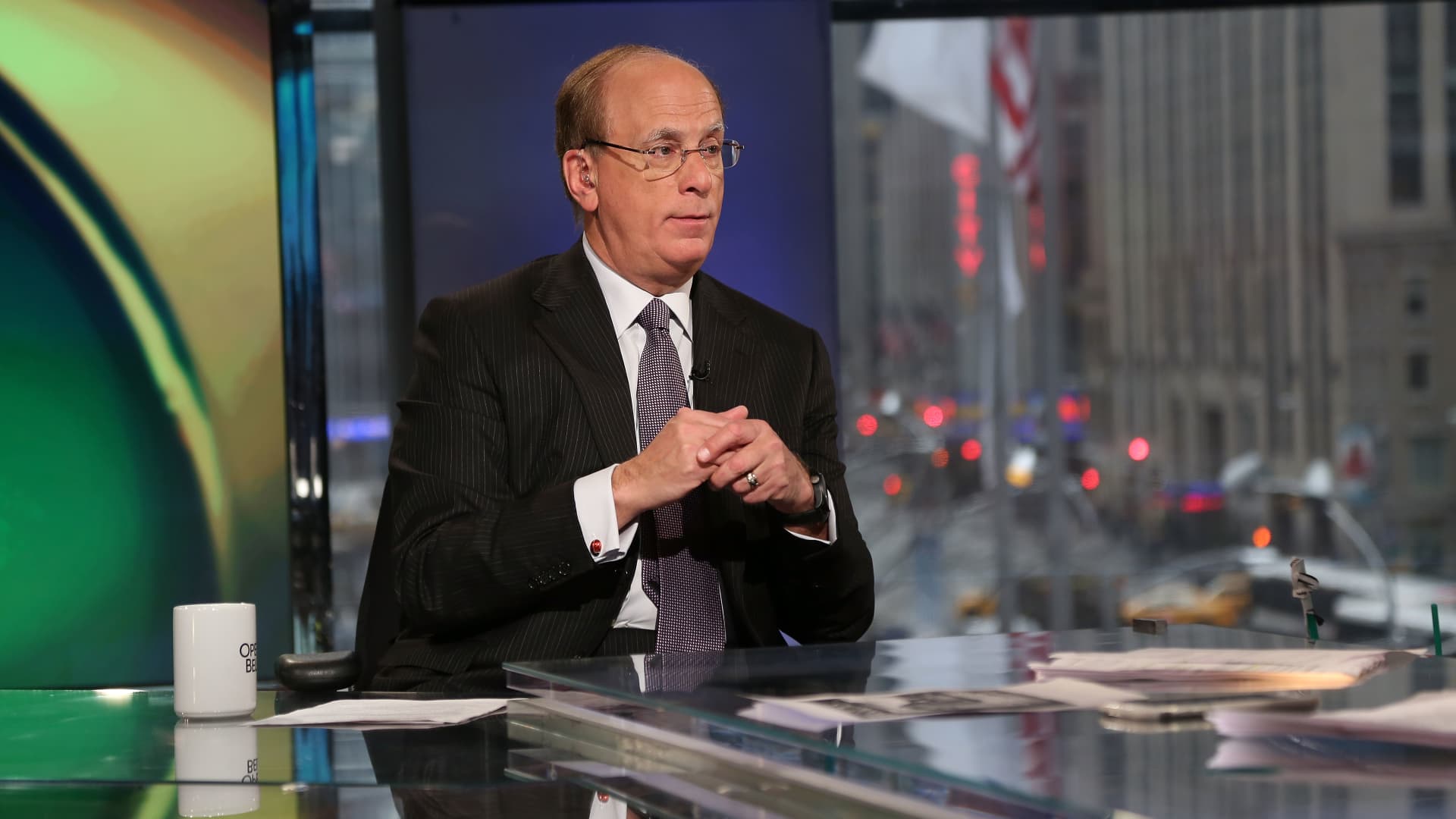BlackRock’s Larry Fink sees Social Security crisis, says 65 retirement age ‘a bit crazy’
2 min read
BlackRock CEO Larry Fink
Taylor Hill | Getty Images Entertainment | Getty Images
BlackRock Chairman Larry Fink said capital markets can help solve a crisis brewing around the ability of Americans to afford retirement as lifespans elongate, and that the government can provide a basic safety net.
In his annual letter to shareholders of the investing company overseeing $10 trillion in assets, Fink called the decreasing ability to retire in a financially sound way one of the biggest economic challenges of the mid-21st Century. He said access to investing can help solve this conundrum, while also pondering if the expectation for everyone to receive Social Security benefits at age 65 has become archaic.
“Today in America, the retirement message that the government and companies tell their workers is effectively: ‘You’re on your own,'” Fink wrote. “And before my generation fully disappears from positions of corporate and political leadership, we have an obligation to change that.”
Fink pointed to a U.S. Census Bureau survey that found nearly half Americans between 55 and 65 have no savings in personal retirement accounts. And the investing firm’s leader noted tens of millions of Americans work part-time or gig jobs that don’t offer clear retirement contribution plans.
Worsening the outlook is a Social Security system that’s said it will not be able to pay full benefits by 2034.
The 71-year-old believes the American retirement system has entered such a deep crisis that it has become a once-in-a-generation issue. He said it’s on government and business leaders to start trying to fix it right away.
A federal law that will require employers with 401K plans to auto-enroll new workers provides a bright spot, he said. Hundreds of companies have already taken this step, Fink noted.
But corporations also have a duty to provide benefits like fund matching or financial education to workers, he said. And Fink said employees should be able to easily transfer 401K savings when they change jobs.
About 20 U.S. states have established retirement systems that include gig and part-time workers. Fink said more states should look into creating specific programs and act as “laboratories of retirement.” That’s because this both can benefit individuals and help ensure the long-term health of Social Security.
Increasing lifespans create further difficulties when trying to improve the retirement system, Fink said. This issue is of increasing relevance as blockbuster weight-loss drugs have already begun drastically reshaping the healthcare landscape, he said.
As a result, Fink said it’s worth taking a look at when Americans are expected to start accessing Social Security benefits, typically a sensitive topic that no politician wants to touch. He noted potential solutions including either raising the age for benefits or finding ways to encourage working later.
“No one should have to work longer than they want to,” he said. “But I do think it’s a bit crazy that our anchor idea for the right retirement age — 65 years old — originates from the time of the Ottoman Empire.”






